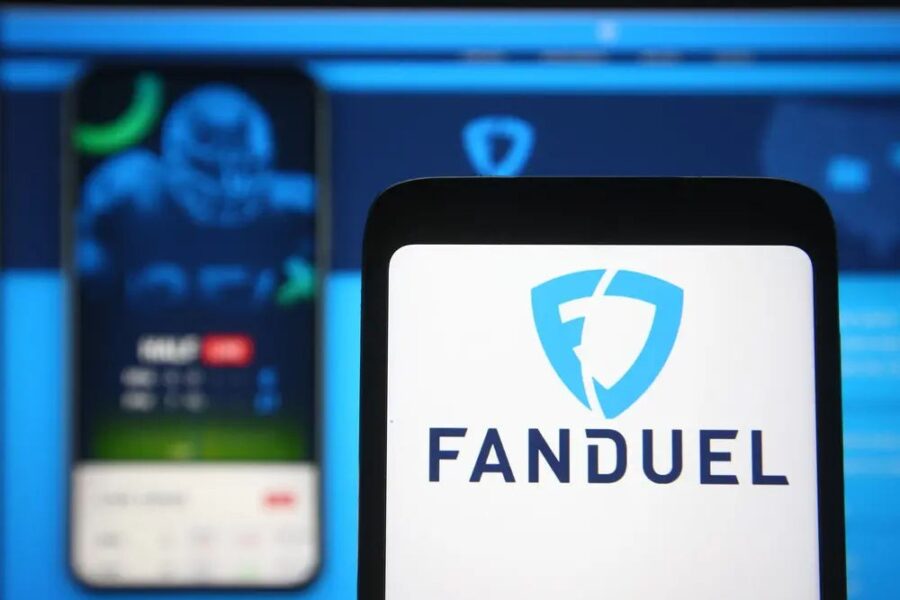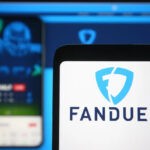FanDuel introduces collaborative parlay for Thanksgiving holiday

FanDuel has revealed its Thanksgiving-themed parlay, Pass The Leg, which allows bettors to collaborate on the same parlay.
FanDuel described the new parlay as a “first of its kind” app feature that enables users to collaborate on a single group parlay, with each able to add their own ‘leg’ and then add the completed parlay to each of their own betslips.
Other features of the parlay include a Pass The Leg Profit Boost, which amplifies the potential payout of the collaboratively built parlay.
The new parlay will be available for all three Thanksgiving NFL games, aiming to bring together friends and family for the holiday.
FanDuel Managing Director of Sportsbook Karol Corcoran said, “Pass The Leg is all about how our customers actually experience sports – together, sharing excitement, and creating memories around the games they love.
“We listened to how fans were already collaborating in group chats and family gatherings, and built a feature that brings that natural social energy directly into their betting experience.”
FanDuel has been focused on its impending prediction market launch in December with derivatives exchange CME Group. Following this announcement, FanDuel left the American Gaming Association, along with sportsbook rival DraftKings.
Charlotte Capewell brings her passion for storytelling and expertise in writing, researching, and the gambling industry to every article she writes. Her specialties include the US gambling industry, regulator legislation, igaming, and more.
Verticals:
Sectors:
Topics:
Dig Deeper
The Backstory
What’s driving the social push in sports betting
FanDuel’s move to make parlays collaborative fits a broader playbook: keep bettors engaged by making complex bets easier, stickier and more communal. Parlays have become the cornerstone of U.S. sportsbook profitability because they bundle multiple outcomes into one wager, lifting hold rates and time spent in app. The strategy has been visible across the competitive set all year as operators layer new tools, rewards and formats around the same idea — more legs, more reasons to return, more time in the ecosystem.
While customers have long coordinated bets informally in group chats, operators are codifying that behavior with product features that emphasize participation and sharing. The approach aims to deepen loyalty during tentpole moments — from the NFL holidays to March Madness — while creating reasons for more frequent check-ins between games. The tactic also counters a newer form of competition: prediction markets that blur the line between sports wagers and financial-style contracts.
After the Kalshi scare, reality checked the market
Investor anxiety about prediction markets interrupting the parlay engine spiked in early fall when Kalshi launched an NFL parlay product and briefly knocked billions off the market caps of DraftKings and Flutter, FanDuel’s parent. But subsequent reporting suggests the threat was overstated. As Sportico’s analysis of Kalshi’s early volumes showed, parlays represented just 3.1% of the platform’s NFL trading the week of Oct. 6 and only 1.1% of its total activity. That’s a far cry from the 60% revenue contribution parlays deliver at mature state sportsbooks such as Maryland, Illinois and New Jersey.
Even so, the episode underscored how quickly capital markets react to any sign that high-margin parlay business could be contested. Kalshi’s pivot into sports is real — September NFL contracts hit $1.13 billion in volume, with college football at $811 million — and the company’s $300 million fundraise at a $5 billion valuation equips it to keep experimenting. For FanDuel and rivals, that means protecting the parlay advantage with differentiated features and social hooks that prediction markets, built for trading rather than fandom, may struggle to replicate.
DraftKings raises the stakes with a paid parlay booster
DraftKings has been explicit about leaning into parlays to drive margin expansion, and this fall it put money behind the thesis. The company unveiled DraftKings Sportsbook+, a $20-per-month subscription that supercharges parlay profit boosts and scales rewards with the number of legs, doubling winnings for 11-plus-leg tickets. The offer is aimed at increasing the average leg count — and, by extension, operator hold — while locking in higher-value users with ongoing perks like unlimited odds boosts.
For FanDuel, that escalation set a new bar for perceived value and gamification around multi-leg bets. It also confirmed that the parlay arms race is as much about product packaging and incentives as it is about pricing. Collaborative builds, opt-in boosts and group-based mechanics give sportsbooks a way to match or counter subscription entitlements without moving odds. The competitive dynamic explains why operators are sequencing feature releases around marquee sports windows, where adoption and network effects are strongest.
Feature rollouts cluster around tentpole events
This year’s cadence shows sportsbooks timing innovation to maximize visibility and habit formation. In March, FanDuel launched a Bet Back Token for the NCAA tournament, allowing customers to recoup bets in bonus wagers if injuries or bad starts derailed parlays. The company paired that with a multi-round parlay builder tailored to the bracket format, creating a bridge from busted brackets to continued betting across rounds.
The same playbook appears in football season: roll out fresh mechanics during high-viewership slates when groups gather and bet together. The goal is to make new features habitual by the time playoffs arrive. That sequencing also helps operators test engagement levers under peak load, refine limits and promotions, and decide which tools merit permanent placement in the product. As rivals stack upgrades — subscription boosts, partial payouts, cash-out variants — the differentiators increasingly hinge on social utility and ease of use rather than any one odds innovation.
Responsible play is becoming a core product lane
As operators add hooks that nudge bettors toward more legs and higher frequency, they face growing scrutiny to embed guardrails in the same customer journey. FanDuel has moved to make that part of the experience rather than an add-on. The company said that about 3.5 million customers used its My Spend dashboard during the 2024–25 NFL season, roughly half its user base. The tool centralizes spend, deposit and wagering data and steers customers toward limits and personalized plans.
FanDuel launched My Spend in December 2024 and amplified it with a playoffs ad push. Consumer testing found three in four viewers agreed the tool made tracking and managing spend easier. The embrace of in-app budgeting is notable in a period when operators are intensifying parlay promotion. Building responsible play tools where high-margin behavior occurs serves a business aim too: regulators and league partners expect it, and users respond better to controls that do not interrupt the core product flow.
Reputation and risk management remain in the frame
The industry’s reputational risk is not limited to marketing tactics. It also runs through payments, fraud and partnerships with pro leagues. FanDuel agreed to repay the Jacksonville Jaguars $5 million after a former team employee embezzled funds and gambled nearly $20 million on FanDuel, losing 99% of it. The NFL did not formally intervene but encouraged a fair outcome, according to reporting at the time. The settlement, alongside ongoing litigation in which the former employee sued FanDuel, shows how operators must balance legal exposure, league relationships and public perception.
These pressures shape product decisions. Features that encourage group participation and shared parlays can deepen engagement, but they also demand robust identity, affordability and anti-abuse controls — especially when wagers are co-created and replicated across multiple bet slips. As sportsbooks broaden their social surfaces, the stakes for compliance and consumer protection rise in tandem.
Put together, the sector’s trajectory is clear: parlays remain the growth engine, and operators are racing to make them more social, flexible and rewarding. Competition from prediction markets has sharpened that focus, while rivals like DraftKings are monetizing enthusiasm through premium tiers. FanDuel’s recent slate of features illustrates the balance the industry is trying to strike — elevate engagement during marquee moments, prove value to users in ways hard for traders to imitate and keep a visible, data-driven safety net stitched into the experience.







